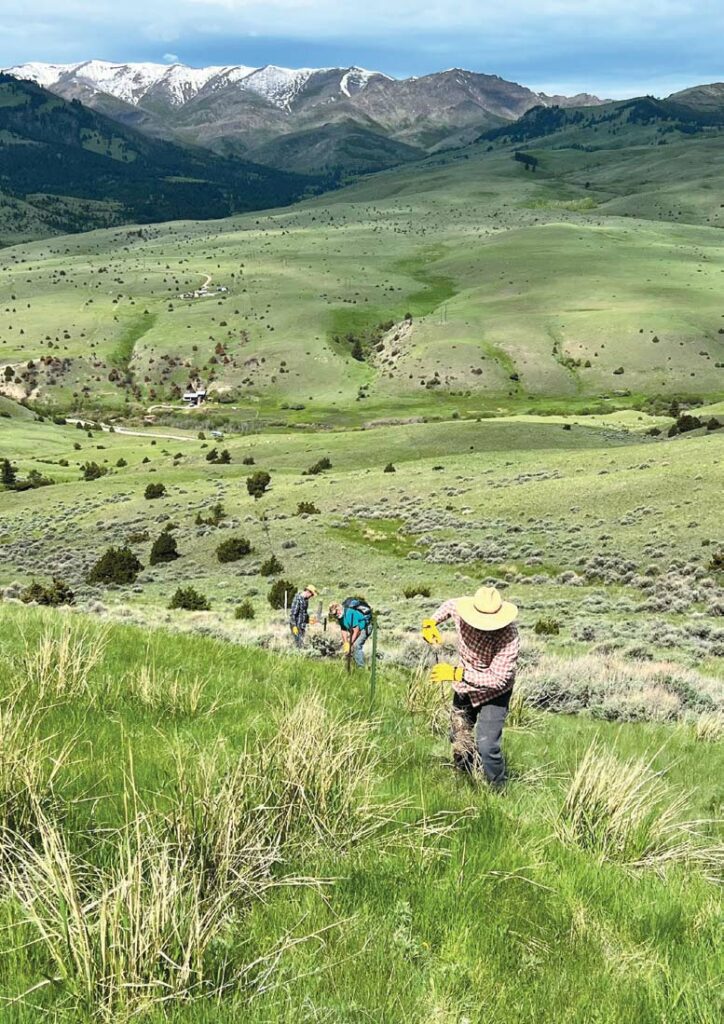Participants of the Montana Master Hunter Program practice making ethical shots during a field day near Bozeman. They also assist landowners with work projects that demonstrate the role of working landscapes in wildlife conservation.
Hunting is a vital part of Montana’s heritage and culture; in many ways, the activity embodies the rural community lifestyle. Originally, hunting meant subsistence, and a person’s survival required access to areas of land where they could find the food they needed. In today’s world, our meat often comes packaged in shrink wrap, but for Montana hunters, the meat they harvest tells a story.
I have enjoyed the sporting outdoors all of my life and can attest to the fact that today’s hunters tend to be dedicated conservationists and deeply connected to nature. Hunting fulfills many different needs: It’s a challenging recreational activity, an immersion in nature, a connection to our heritage, and a way of providing healthy protein for our families.

Eating game is a genuine way to eat locally and sustainably, and you know exactly what you are eating. Hunters generally use as much of the animal as possible, letting little go to waste. The stories associated with how the meat made it to the table make these meals even more special.
While hunting offers many benefits, it’s also an activity with requirements. In addition to making ethical decisions and following land stewardship philosophies, seasoned hunters have a responsibility to help educate new hunters and non-hunters about the important role that hunting plays in conservation, wildlife management, and preserving our cultural heritage—it is a link between the land, wildlife, and humans.
For the last six years, I have helped to lead One Montana’s Montana Master Hunter Program, which is fostering important dialogue about private land management, living with wildlife, and ethical sporting behavior. Participants learn how to be a more effective hunter who can work with landowners and help them with their wildlife management goals, becoming ambassadors and mentors.
In 2022, more than 80 Master Hunter participants provided a total of over 600 volunteer hours, working on 21 ranch projects that help to enhance and maintain sustainable agriculture and ranching practices that support wildlife habitat and corridors.
- For more information about programming or to apply for an education course, visit mtmasterhunter.com.

